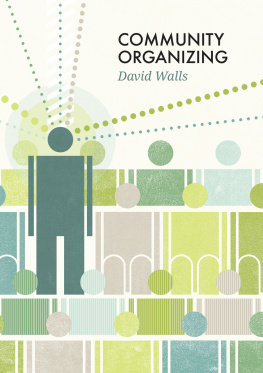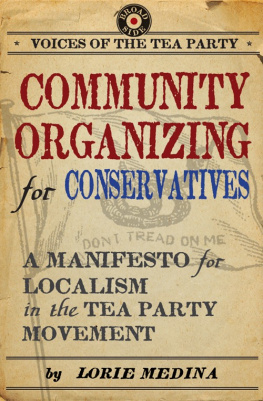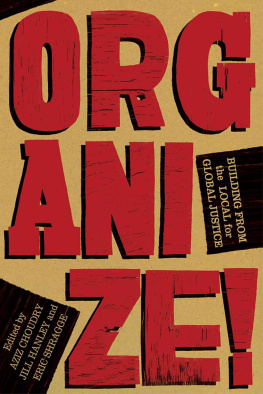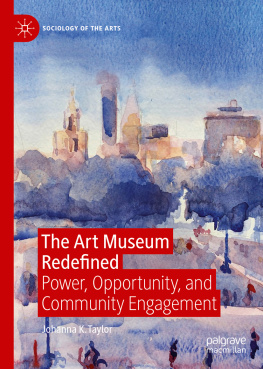Contents
Guide
Print Page Numbers
Community Organizing
Social Movements series
Stephanie Luce, Labor Movements:
Global Perspectives
David Walls, Community Organizing:
Fanning the Flame of Democracy
Copyright David Walls 2015
The right of David Walls to be identified as Author of this Work has been asserted in accordance with the UK Copyright, Designs and Patents Act 1988.
First published in 2015 by Polity Press
Polity Press
65 Bridge Street
Cambridge CB2 1UR, UK
Polity Press
350 Main Street
Malden, MA 02148, USA
All rights reserved. Except for the quotation of short passages for the purpose of criticism and review, no part of this publication may be reproduced, stored in a retrieval system, or transmitted, in any form or by any means, electronic, mechanical, photocopying, recording or otherwise, without the prior permission of the publisher.
ISBN-13: 978-0-7456-8816-9
A catalogue record for this book is available from the British Library.
The publisher has used its best endeavours to ensure that the URLs for external websites referred to in this book are correct and active at the time of going to press. However, the publisher has no responsibility for the websites and can make no guarantee that a site will remain live or that the content is or will remain appropriate.
Every effort has been made to trace all copyright holders, but if any have been inadvertently overlooked the publisher will be pleased to include any necessary credits in any subsequent reprint or edition.
For further information on Polity, visit our website: politybooks.com
Contents
Abbreviations
| AALC | African American Leadership Commission |
| ABCD | asset-based community development |
| ACORN | Association of Community Organizations for Reform Now |
| ACT | Allied Communities of Tarrant |
| AFL | American Federation of Labor |
| BUILD | Baltimoreans United in Leadership Development |
| BYNC | Back of the Yards Neighborhood Council |
| CBA | community benefit agreement |
| CBCO | congregation-based community organization |
| (C)CHD | (Catholic) Campaign for Human Development |
| CDBG | Community Development Block Grant |
| CDGM | Child Development Group of Mississippi |
| CIO | Committee on Industrial Organization |
| CO | council organizer |
| COPS | Communities Organized for Public Service |
| CORE | Congress of Racial Equality |
| CP | Communist Party |
| CSO | Community Service Organization |
| CWA | Communication Workers of America |
| DART | Direct Action and Research Training Center |
| EBC | East Brooklyn Congregations |
| ERAP | Economic Research and Action Project |
| FIGHT | Freedom, Integration, God, Honor, Today |
| IAF | Industrial Areas Foundation |
| IBCO | institution-based community organization |
| IJR | Institute for Juvenile Research |
| IMF | International Monetary Fund |
| IVE | integrated voter engagement |
| JwJ | Jobs with Justice |
| LULAC | League of United Latin American Citizens |
| NAACP | National Association for the Advancement of Colored People |
| NBOP | North Bay Organizing Project |
| NIRA | National Industrial Recovery Act |
| NPA | National Peoples Action |
| NTIC | National Training and Information Center |
| OBA | Organization for a Better Austin |
| OEO | Office of Economic Opportunity |
| OFA | Obama for America/Organizing for America/ Organizing for Action |
| OSR | Occupy Santa Rosa |
| OWS | Occupy Wall Street |
| PICO | Pacific Institute for Community Organization/ People Improving Communities through Organizing |
| PNCC | Pilsen Neighbors Community Council |
| PWOC | Packinghouse Workers Organizing Committee |
| RO | regional organizer |
| SCLC | Southern Christian Leadership Conference |
| SDS | Students for a Democratic Society |
| SMART | SonomaMarin Area Rail Transit |
| SMI | social movement industry |
| SMO | social movement organization |
| SNCC | Student Nonviolent Coordinating Committee |
| SPIN | Segmented Polycentric Ideological Networks |
| TEN | Transportation Equity Network |
| TMO | The Metropolitan Organization |
| TWO | The Woodlawn Organization |
| UFW | United Farm Workers |
| UMWA | United Mine Workers of America |
| USCC | United States Catholic Conference |
| WTO | World Trade Organization |
| WUNC | worthiness, unity, numbers, and commitment |
Introduction: Making Change
Is the world to be changed? How? By whom?
The skeptical first god in
The Good Person of Szechwan
by Bertolt Brecht
Can the world be changed? Bertolt Brechts challenging question continues to provoke. Community organizers answer with a resounding Yes! But exactly how? And who would be the active agents of change?
This book argues that the tradition of community organizing launched by Saul Alinsky, as modified and developed, offers concepts and tools that are indispensable to a democratic strategy of social change that promotes grassroots leadership and power for social, economic, racial, and environmental justice. Some critics have claimed the scale of community organizing is too small for the task of making transformative change in a large and complex society. But its no longer just about stop signs, block clubs, and neighborhood associations. Consistent with Alinskys original vision, the scope of community organizing has expanded to include cities, metropolitan areas, states, and even national government policy. Alinskys approach to organizing, like the man himself, was a product of his time and place, and needed to be modified to thrive in changing circumstances. We will look at the development of this organizing tradition through a framework of social movement analysis, assess its strengths and weaknesses, and examine proposals to modify and develop community organizing to meet its promise of deepening democracy in our challenging times of expanding inequality.







